
Related
Britain is continuing to mourn the murder of British Labour MP Jo Cox, who was stabbed and shot to death Thursday after she met constituents in her district. Cox’s death came just a week before the major Brexit referendum, when British voters will decide whether the country should exit the European Union. Her murderer, Thomas Mair, reportedly yelled out “Britain First” during the attack—a reference to the far-right, anti-immigrant political party of the same name which is pushing for Britain to leave the EU. In a special session of Parliament on Monday, lawmakers convened to pay tribute to their slain colleague. The session was led by Prime Minister David Cameron and opposition leader Jeremy Corbyn, head of the Labour Party. Shortly after the parliamentary session ended, Democracy Now! spoke with Jeremy Corbyn.
Transcript
AMY GOODMAN: Britain is continuing to mourn the murder of British Labour MP Jo Cox, who was stabbed and shot to death Thursday after she met constituents in her district. Cox’s death came just a week before the major Brexit referendum, when British voters will decide whether the country should exit from the European Union. In a special session of the British Parliament Monday, lawmakers convened to pay tribute to their slain colleague. The session was led by Prime Minister David Cameron and opposition leader Jeremy Corbyn, head of the Labour Party, who praised Cox for her work to help Syrian refugees.
JEREMY CORBYN: Jo Cox didn’t just believe in loving her neighbor, she believed in loving her neighbor’s neighbor. She saw a world of neighbors. She believed every life counted equally. … And in her tragic death, we can come together to change our politics, to tolerate a little more and condemn a little less.
AMY GOODMAN: Jo Cox’s murderer, Thomas Mair, reportedly yelled out “Britain First” during the attack. It was a reference to the far-right, anti-immigrant political party of the same name, which is pushing for Britain to leave the European Union. The Southern Poverty Law Center in the United States revealed Mair is a longtime supporter of the neo-Nazi National Alliance and that he attended a 2000 meeting of British white supremacists organized by a man who was actually an FBI informant. In court on Friday, Mair gave his name as “Death to traitors, freedom for Britain.”
Jo Cox was a 41-year-old mother of two who worked at Oxfam before being elected as a Labour MP last year. She was known for her passionate support for Syrian refugees and was a member of Labour Friends of Palestine. Cox was a vocal advocate for Britain to stay in the European Union. On Thursday, British voters will go to the polls in this historic Brexit referendum to decide whether to leave or remain in the EU.
Well, late yesterday, on Monday, I had a chance to speak with British opposition leader Jeremy Corbyn shortly after he led the tribute to Cox in the Parliament. I began by asking Jeremy Corbyn to talk about Jo Cox.
JEREMY CORBYN: Jo Cox was a Labour member of the British Parliament. She represented Batley and Spen, which is a working-class community in the north of England in Yorkshire near Leeds. She was elected a year ago. She comes from that area. But also in her life, she had worked for anti-slavery campaigns for Oxfam, and she had been active on human rights issues in many countries.
And she was shot and stabbed in the street. A retired miner rushed to try and aid her, and he, too, was stabbed. He, fortunately, appears to be making a recovery in hospital. Jo died a short time later. And everybody is shocked and in mourning. I went to the town the following day, and people were just in complete grief and shock, because they had lost their MP, but also because it’s an attack on democracy itself. If you murder an elected representative of the people doing their job, then, in effect, you’re saying, “We’re going to stop them doing that job, because we’re going to kill them.”
And so, today there was a special session of Parliament called in commemoration of Jo Cox. And every member came—and I think pretty well every MP was there, it was very crowded—bore a white rose in memory of her, because that’s the flower of Yorkshire, her part of the country, the white rose of Yorkshire. And we paid our tributes to her. But we also, many of us, in our contributions, said that the language of hatred that’s being used by the far right, the attacks on migrants, the attacks on refugees, is a contributory factor to this atmosphere. So, we mourn her, we remember her, we’re very sad for her children and her husband and her parents and her sister, but we’re also very determined that we will not allow our society to become divided.
What was impressive on Friday was the people from all communities—from Haitian community, Afro-Caribbean community—all there joining in with people whose ancestry is completely British for a very long time. And on Friday evening, there were ceremonies at mosques, in welfare places, in churches and chapels, streets and so on. And they’ve been held all weekend in this country. So it’s been a very interesting response of people expressing their total shock at what’s happened, but also that determination to get a sense of unity.
I’ll give you an example. Emily Thornberry, my neighboring MP, and myself, in the London borough of Islington, we had a little discussion on Saturday morning and said, “We’ve got to do something locally.” So we invited people to come along to our town hall last night, Sunday night. Hundreds and hundreds turned up just to show respect and also show determination. That’s good. That’s—if there’s any good coming out of this horror, it’s got to be that.

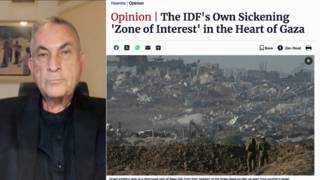
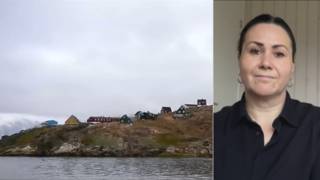
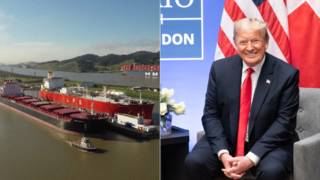






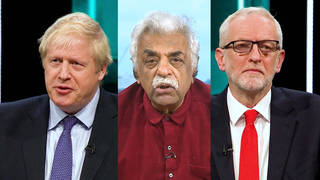
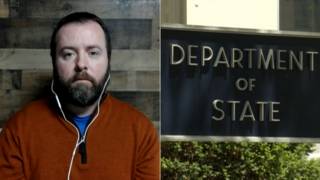
Media Options